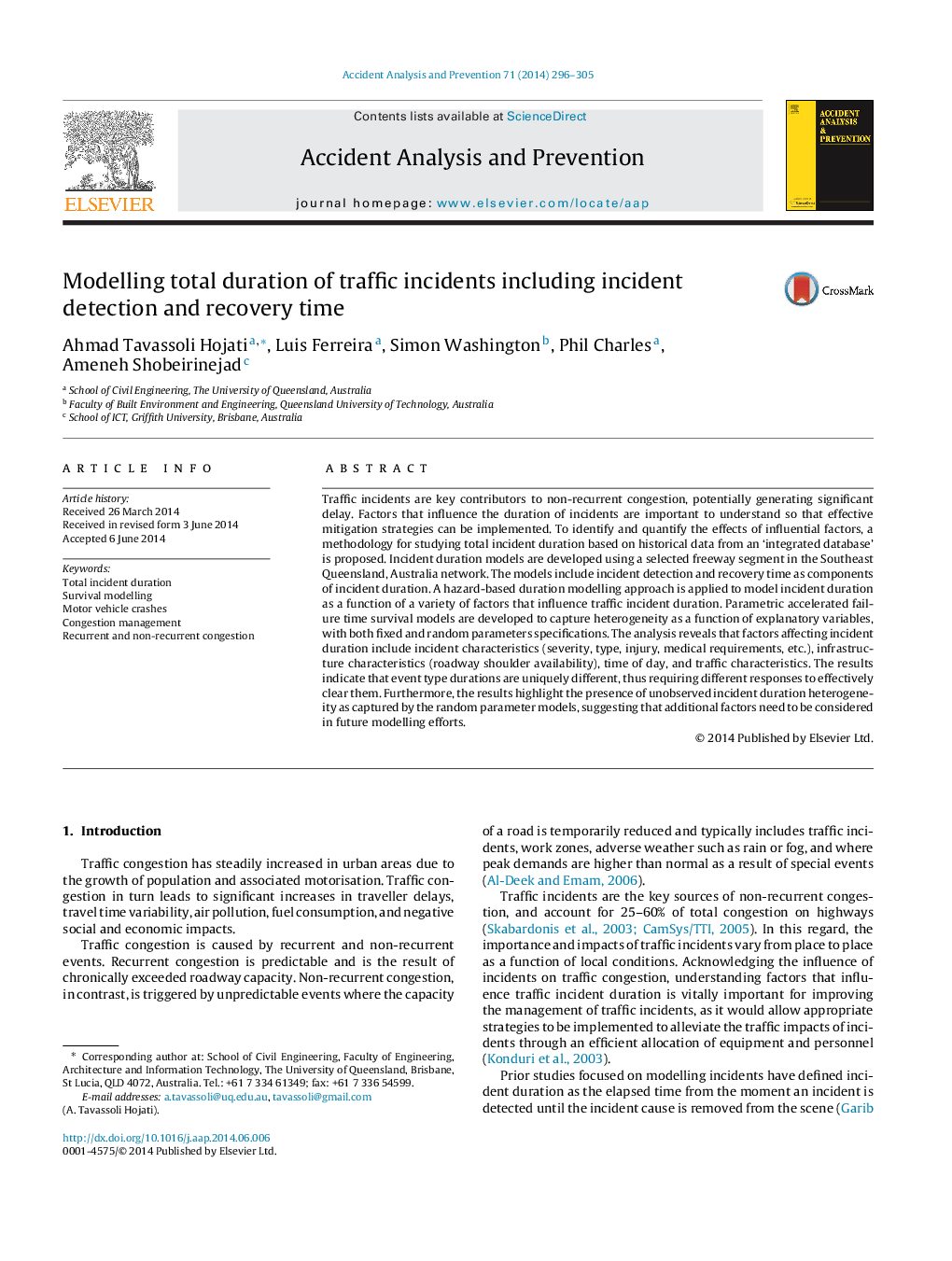| Article ID | Journal | Published Year | Pages | File Type |
|---|---|---|---|---|
| 6965934 | Accident Analysis & Prevention | 2014 | 10 Pages |
Abstract
Traffic incidents are key contributors to non-recurrent congestion, potentially generating significant delay. Factors that influence the duration of incidents are important to understand so that effective mitigation strategies can be implemented. To identify and quantify the effects of influential factors, a methodology for studying total incident duration based on historical data from an 'integrated database' is proposed. Incident duration models are developed using a selected freeway segment in the Southeast Queensland, Australia network. The models include incident detection and recovery time as components of incident duration. A hazard-based duration modelling approach is applied to model incident duration as a function of a variety of factors that influence traffic incident duration. Parametric accelerated failure time survival models are developed to capture heterogeneity as a function of explanatory variables, with both fixed and random parameters specifications. The analysis reveals that factors affecting incident duration include incident characteristics (severity, type, injury, medical requirements, etc.), infrastructure characteristics (roadway shoulder availability), time of day, and traffic characteristics. The results indicate that event type durations are uniquely different, thus requiring different responses to effectively clear them. Furthermore, the results highlight the presence of unobserved incident duration heterogeneity as captured by the random parameter models, suggesting that additional factors need to be considered in future modelling efforts.
Related Topics
Physical Sciences and Engineering
Chemical Engineering
Chemical Health and Safety
Authors
Ahmad Tavassoli Hojati, Luis Ferreira, Simon Washington, Phil Charles, Ameneh Shobeirinejad,
